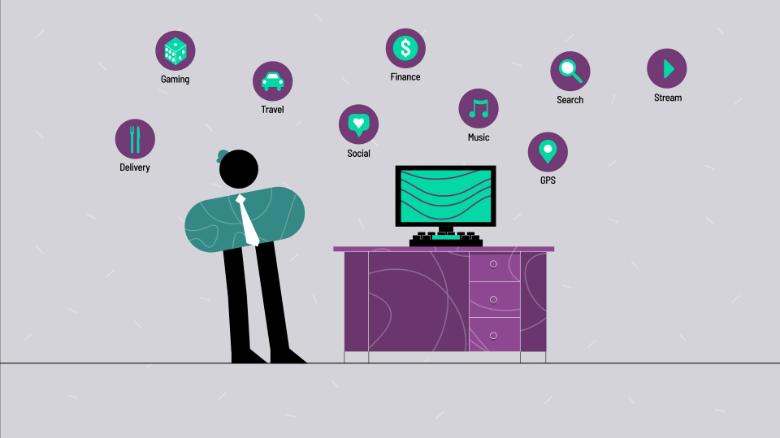Want to work for L’Oreal? Get ready to chat with an AI bot

Global tech giants like Amazon (AMZN) have been leading the charge — with algorithms powering personalized shopping recommendations and personal stylists — but businesses of all sizes are now embracing the technology for recruiting and managing their staff. Smart recruitmentAmong them is L’Oreal (LRLCF). With about a million applicants for roughly 15,000 new positions each year, the cosmetics company is using AI to streamline hiring. “We really wanted to save time and focus more on quality, diversity and candidate experience. And AI solutions were — for us — the best way to go faster on these challenges,” said Eva Azoulay, global vice-president of L’Oreal’s human resources department. The company uses Mya, a chatbot, to save recruiters time during the first stage of the process. It handles routine queries from candidates, and checks details such as availability and visa requirements. Should candidates make it to the next round, they’ll encounter Seedlink, AI software that scores applicants based on their answers to open-ended interview questions.These scores don’t replace human judgment, said Azoulay, but they do turn up candidates who might not seem like obvious choices. “We have been able to recruit profiles that we probably wouldn’t have hired just on their CV. Like a tech profile for marketing, or a finance profile for sales,” she said. Early results have been promising. For one internship program — where 12,000 people apply for about 80 spots — recruiters claim they saved 200 hours of time while hiring the most diverse group to date. Monitoring employee activityOther businesses have gone beyond recruitment and are using AI to help manage employees. Some UK firms have started using Isaak, a system designed by the London-based company StatusToday, to track how many hours staff spend online and the number of emails they receive.London real estate agents JBrown have been using the algorithm-based technology since March. CEO James Brown said it helps the firm understand employees’ habits and prevent them from overworking. “It empowers us to remedy bottlenecks and relieve overburdened employees,” he said. Risky business?AI is still a long way from reaching its full potential, and the technology comes with risks.Algorithms can have an unfair bias depending on their input data. For example, if an algorithm used in hiring was developed using data from a company that employed only men it might be more likely to reject women.This is one reason why the European Commission unveiled ethical guidelines for AI this month, encouraging transparency, data protection and fairness. Another AI danger could be its impact on jobs through automation. McKinsey estimates AI could add $13 trillion to the global economy by 2030, with early adopters doubling their cash flow over that period. But the demand for repetitive or digitally-unskilled jobs could drop by around 10%, the consulting firm said in a 2018 report. This creates a predicament for bosses, said Anab Jain, director at the tech company Superflux. “What if the trend that you advocate around automation actually affects you directly? What would it be like to lose your job? What are the legacies you’re leaving?” she warned. Carla Howe, Agne Jurkenaite and Alex Sears contributed reporting.



